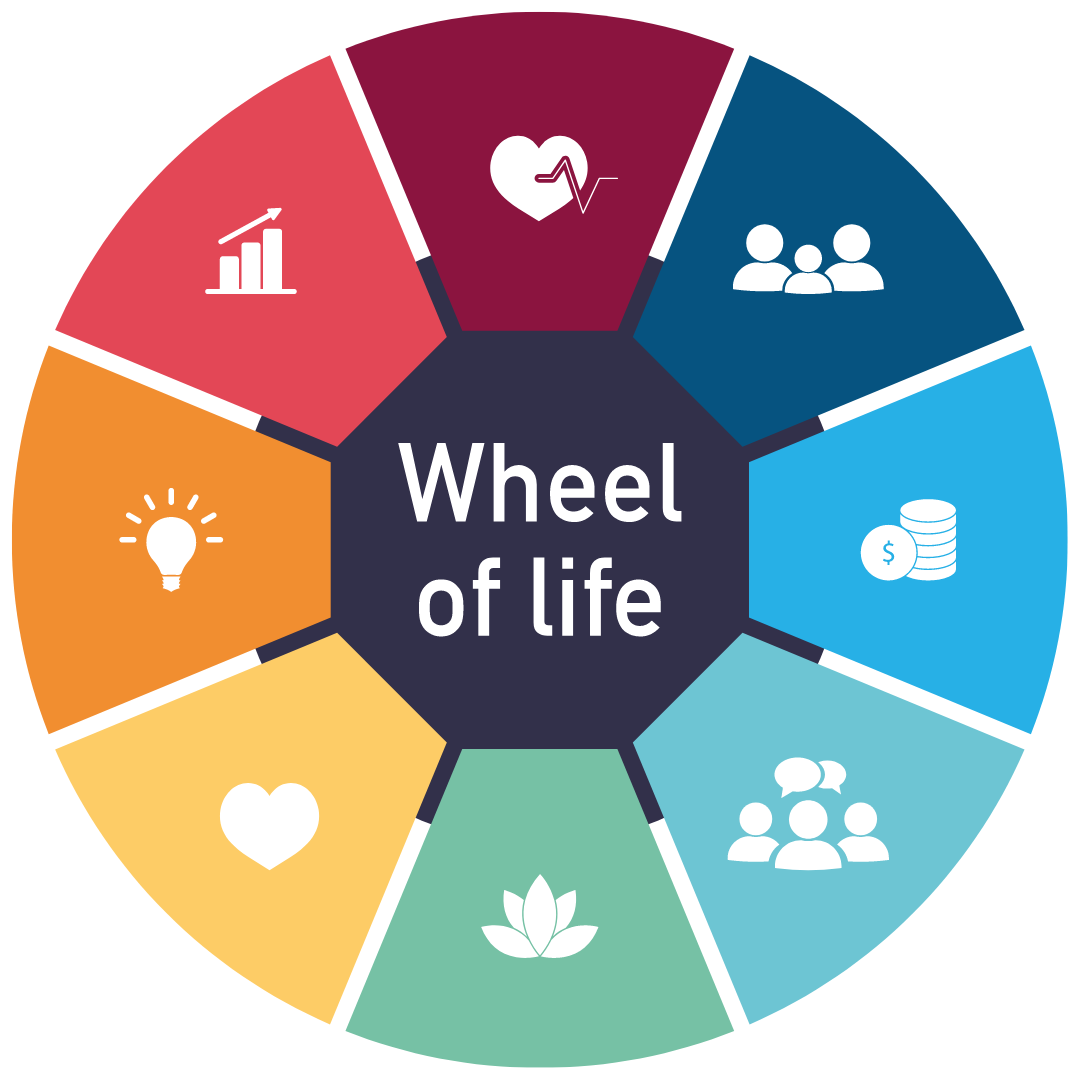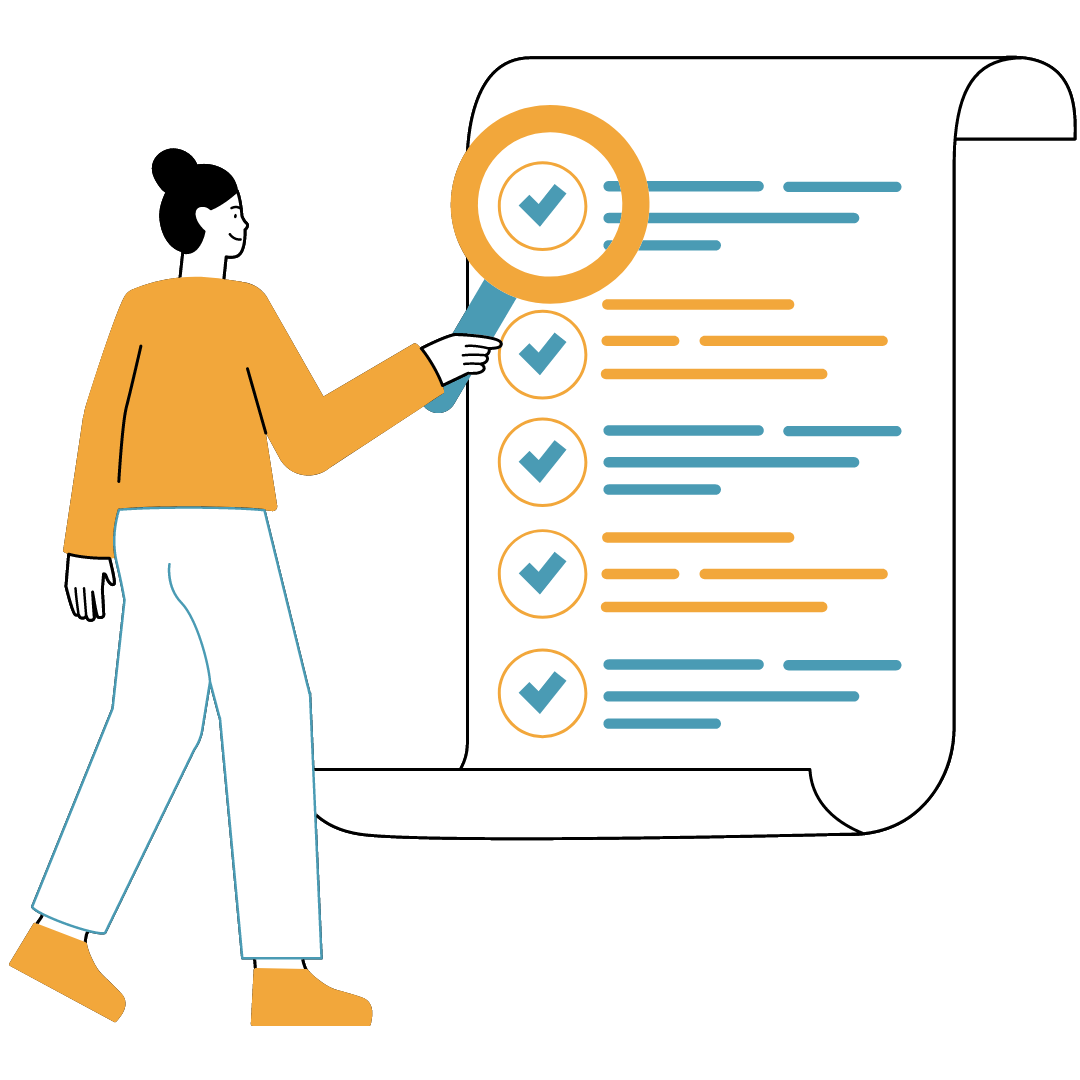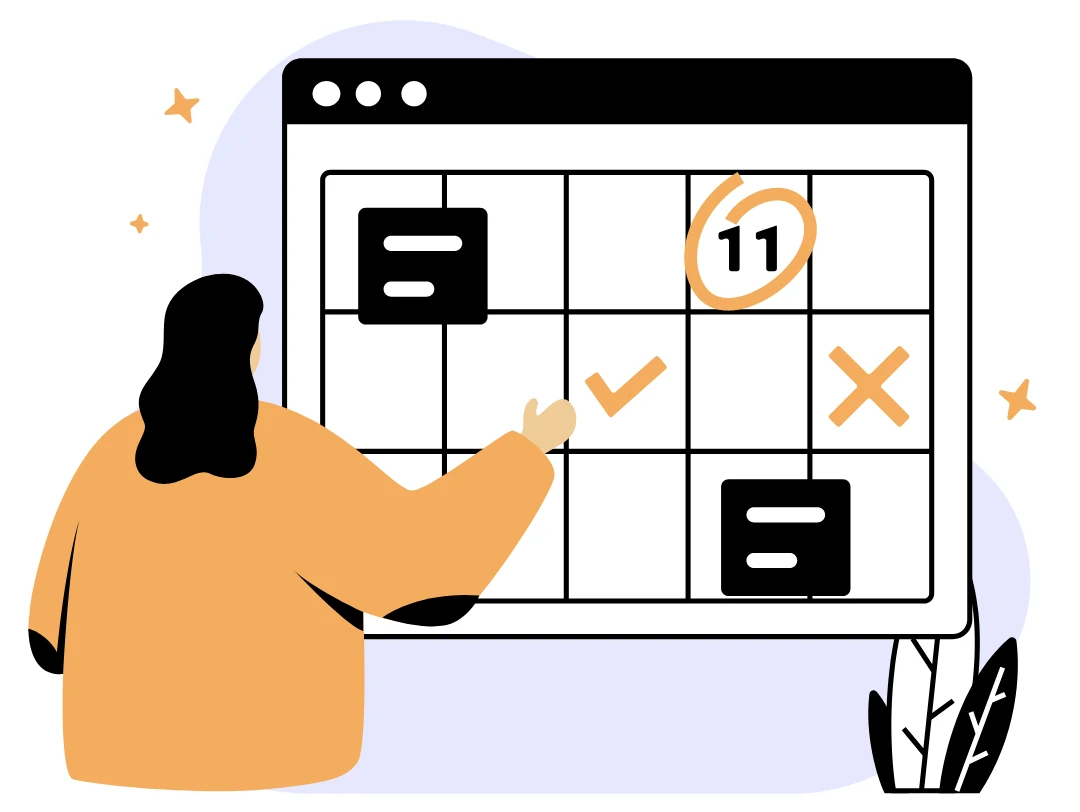How to set & achieve goals: 4-Steps Framework

Setting goals is important to achieving desired results and success in any area of your life. Goals provide clarity and focus by giving you a clear direction on what's important to avoid distractions. However, setting and achieving goals is a long-run process that requires consistency in your actions, a periodical reflection of your journey and adjusting your priorities during the time and commitment to yourself.
🎯 Why is setting goals helpful?
A study conducted by Harvard Business School found that the 3% of graduates who had written clear goals and steps to achieve them earned 10 times as much as the other 97% combined, 10 years after graduation.
Another study conducted by researchers from the Dominican University of California found that people who write down their goals, get committed to them and share them with others have 42% higher success rate in achieving their personal objectives.
Another study conducted by researchers from the Dominican University of California found that people who write down their goals, get committed to them and share them with others have 42% higher success rate in achieving their personal objectives.
💫 4-STEPS framework for setting goals
This article offers a 4-STEPS framework for setting and achieving goals based on scientific findings that you can apply to any area of your life and track progress. This framework was proposed by an ICF-certified career and leadership coach Nadja Sirotkina for one of the AdviSpace group coaching sessions.
This approach contains a list of questions which provoke your thinking on what is going on in your life now and what you would like to have in the future.
➡️ Before you start, prepare a timer, a pen and paper. Allocate one hour of your time to focus on yourself, your wishes and your goals.
This approach contains a list of questions which provoke your thinking on what is going on in your life now and what you would like to have in the future.
➡️ Before you start, prepare a timer, a pen and paper. Allocate one hour of your time to focus on yourself, your wishes and your goals.
STEP 1: “I want to have / I want to be / I want to do …”
Set a specific time frame for which you’re setting goals. For instance, imagine yourself in one year (it can be 6 months, 3 years or 5 years, etc.) as vividly as possible. Now think about what will be different from where you are now.
Think about different areas of your life, people you want to be with, your hobbies, state of mind, career, new experiences and something you desire to have.
—> Now take a piece of paper and write down everything that comes to your mind starting from “I want to have / I want to be / I want to do …”.
—> Now take a piece of paper and write down everything that comes to your mind starting from “I want to have / I want to be / I want to do …”.

⏱️ Time: 10 - 15 mins. Don't finish the exercise before hearing the ring.
STEP 2: DEFINE PRIORITIES

Time to prioritise and think about where to start. Try to answer the following questions:
—> Highlight the goals you absolutely need and want to have by the defined period of time. These objectives are the first priorities you can start working on.
All the following steps of this framework you can repeat and apply them to your other goals as well.
STEP 3: DRAW YOUR ROADMAP
Now you have a list of goals and defined priorities. Time to think about what steps you should undertake toward reaching your goals. Let’s draw an actionable plan for each of your prioritised goals first and think about some possible obstacles that can happen on your journey. Try to answer the following questions, be honest with yourself and write down your thoughts:

⏱️ Time: set 10 mins timer for each of your goals to answer these questions.
STEP 4: COMMITMENT AND CELEBRATION

Great! You know what to do first and how to overcome obstacles that can prevent you from moving on. Time to talk about commitment and celebrations of your small achievements. Try to answer the following questions, be honest with yourself and write down your thoughts:
💡 Hint: The studies mentioned above recommend sharing your goals and progress with someone else who can help keep you accountable. This can be a friend, family member, posts on Social Media or a coach.
⏱️ Time: set 10 mins timer for each of your goals to answer these questions.
After this last of questions, estimate on a scale of 1 to 10, how committed you are to your goal roadmap now.

Congrats! If you followed the instruction and answered all suggested questions, you have:
You can repeat the process with all of your goals and practice it after a while to check if your goals are still relevant or should be adjusted.
💡Some recommendations
➡️ Adjusting your plan, dropping some objectives, and setting new goals are normal. Life changes, some events are unpredictable, and you cannot control everything. Our 4-Steps Framework can guide you through setting and adjusting your plans.
➡️ Try to be soft to yourself and change your daily routines slowly. Don't change your lifestyle entirely from Monday; your body and brain will be stressed. If you never did sport and wish to lose some weight, distribute your activity gently during the week and combine them with something you love and do regularly. For instance, watch your favourite YouTube bloggers while walking instead of sitting on a sofa.
➡️ Ideally, do these exercises in a pair with a person you trust and can freely exchange your thoughts and plans. A partner can listen and ask follow-up questions to help you clarify and structure your thoughts. If you want professional support, you can start working with a coach who can guide you through your transformation and keep you accountable. All coaches on AdviSpace are verified professionals, book the first free intro session, tell more about your goals, and ask all your questions to a coach.
💡 If you like this article, make repost or share it with people who might become your buddy and with whom you can practice these exercises. You can also start working towards your goals with one of our coaches, who can help you keep on track.





 2023 AdviSpace UG (haftungsbeschränkt)
2023 AdviSpace UG (haftungsbeschränkt)